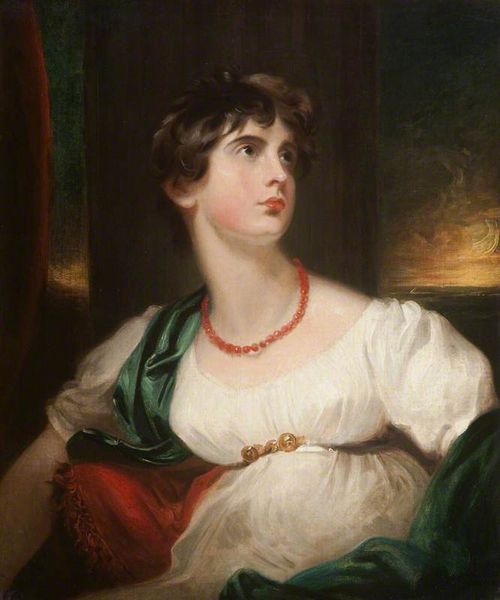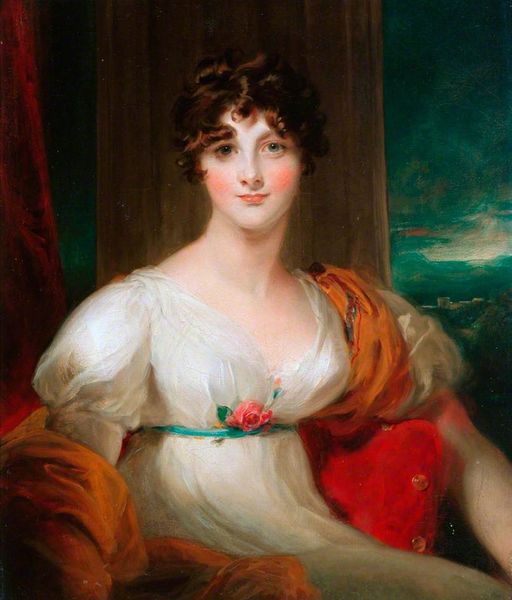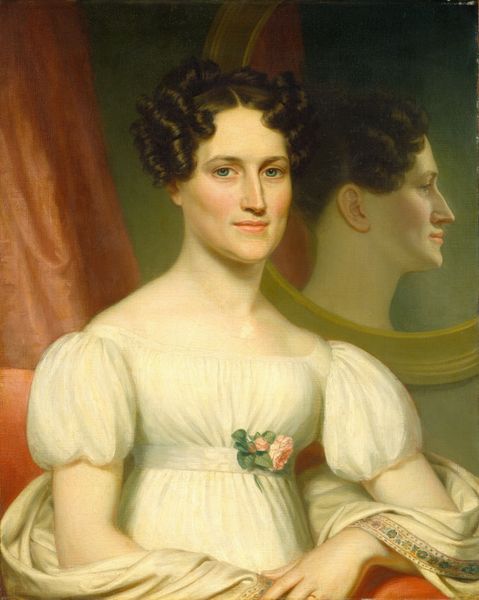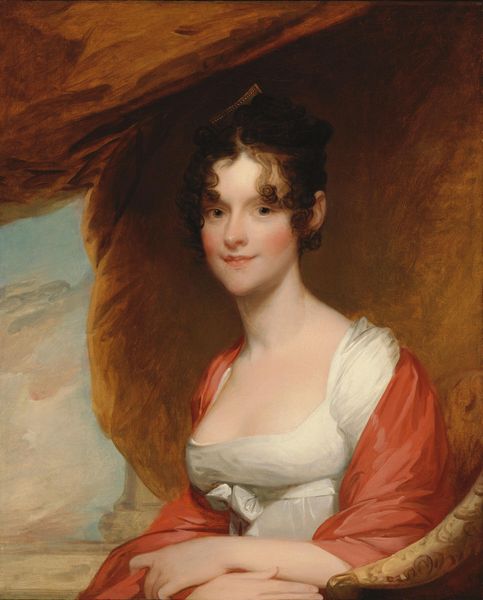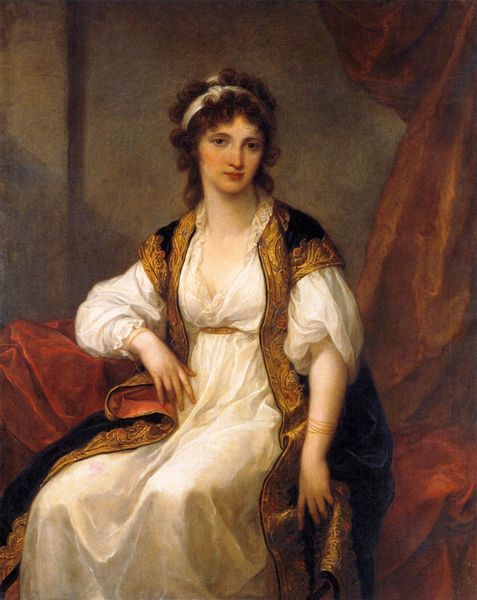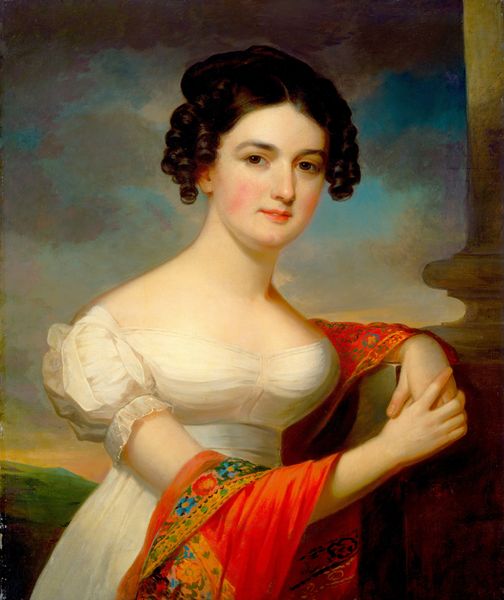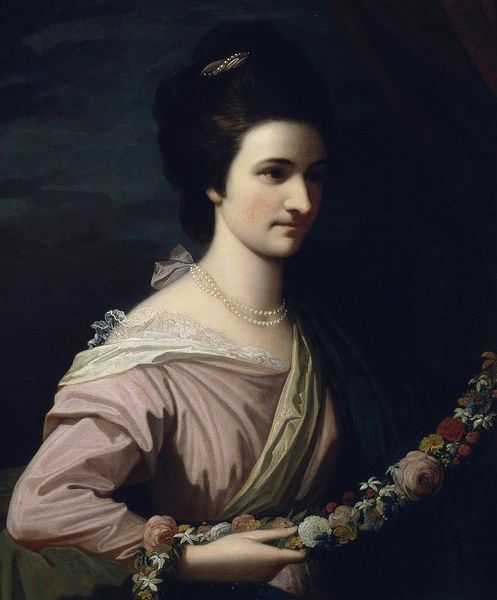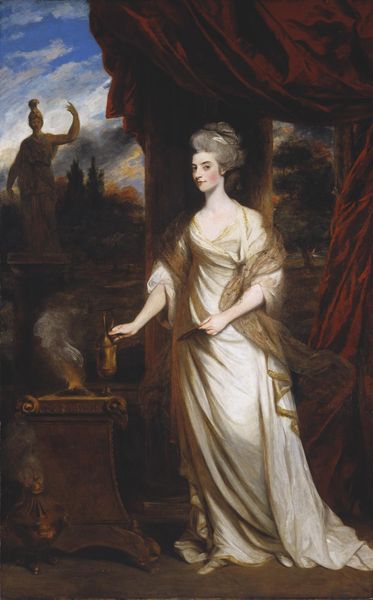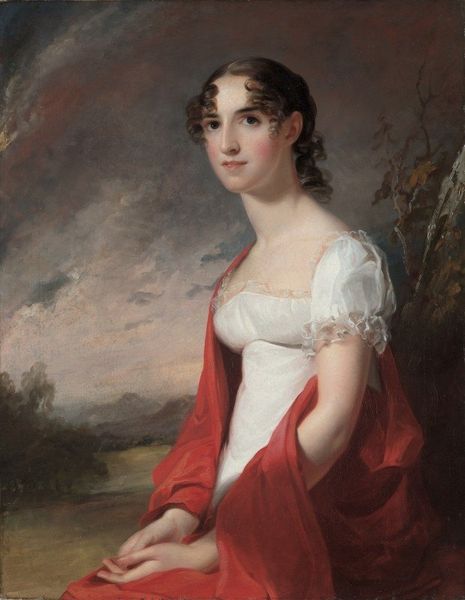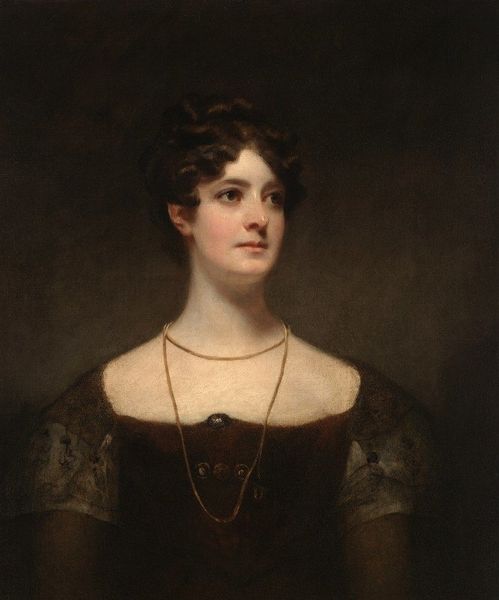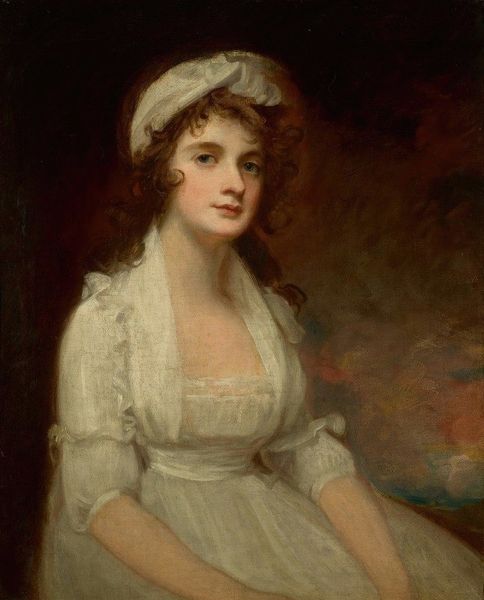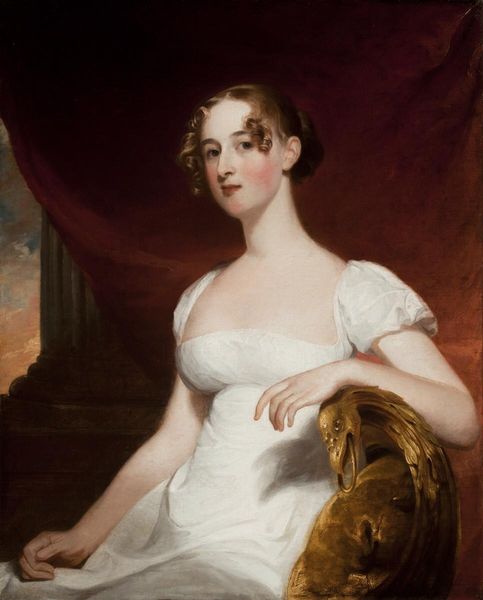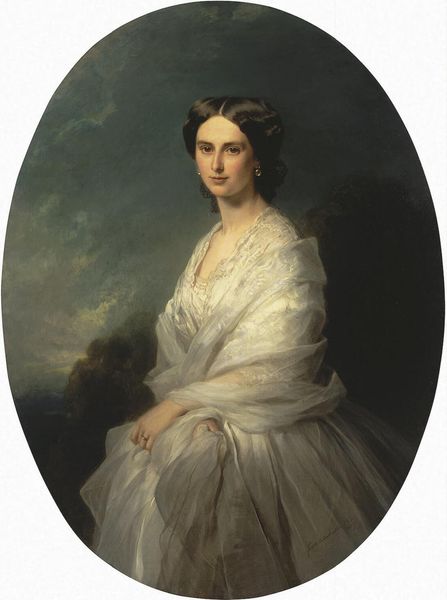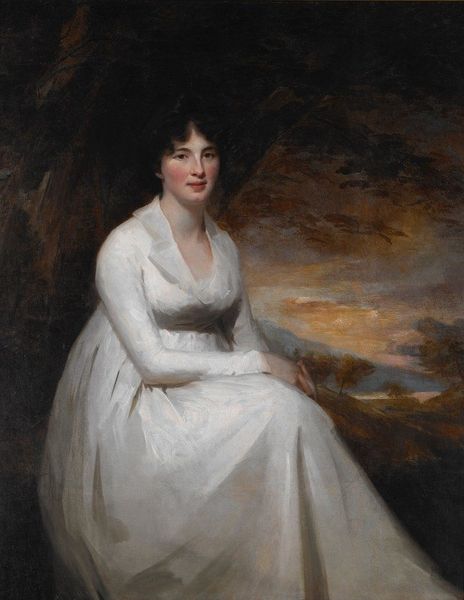
Dimensions: support: 756 x 629 mm frame: 1037 x 920 x 105 mm
Copyright: CC-BY-NC-ND 4.0 DEED, Photo: Tate
Curator: Here we have Sir Thomas Lawrence's portrait of Miss Caroline Fry, held here at the Tate. Editor: The impasto of the red shawl is what grabs me first. Look at the texture! You can almost feel the weight of the fabric. Curator: Lawrence was renowned for his ability to capture the likeness and social standing of his sitters; portraiture was a critical tool for constructing identity. Editor: And you can really see that here. It's a Romantic sensibility, but the way that the paint is layered on feels almost proto-Impressionistic to me. It's about the feel of the material as much as the status of the sitter. Curator: The painting definitely speaks to the evolving role of women in society during the late 18th and early 19th centuries, reflecting changing ideals of beauty and femininity. Editor: It makes you consider who made the paint and textiles, and what their lives were like in comparison. Curator: A compelling perspective, indeed. Editor: It’s always there, isn't it?
Comments
tate 10 months ago
⋮
http://www.tate.org.uk/art/artworks/lawrence-miss-caroline-fry-n01307
Join the conversation
Join millions of artists and users on Artera today and experience the ultimate creative platform.
tate 10 months ago
⋮
Caroline Fry (1787-1846), later Mrs Wilson, author of hymns and religious books, came from a wealthy Kentish family that upheld intellectual effort and strict high church principles. For many years she edited and wrote almost single-handedly a monthly periodical, the 'Assistant of Education', that was to be found in most well-to-do nurseries, including that of the royal family. With the upturned gaze and a hint of church architecture in the background, Lawrence tried to convey something of the spiritual side of this handsome woman, but so discreetly as to keep well within the bounds of conventional society portraiture. Gallery label, August 2004
